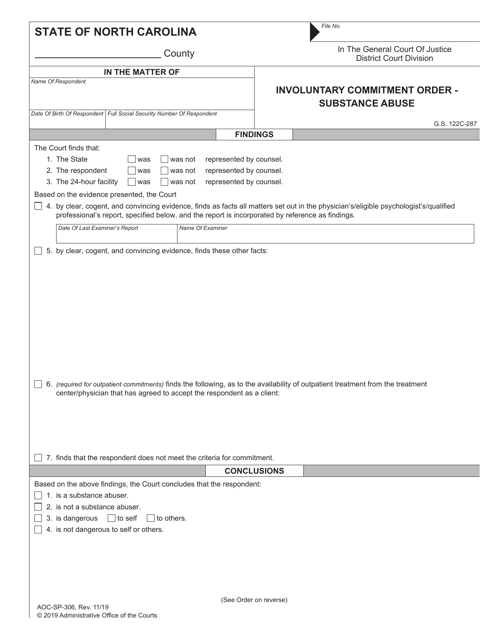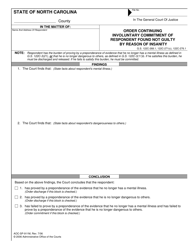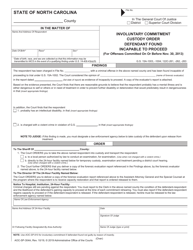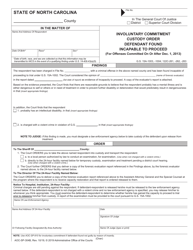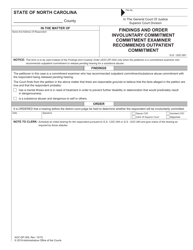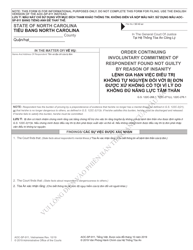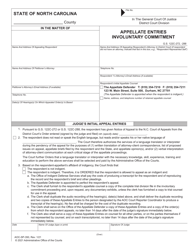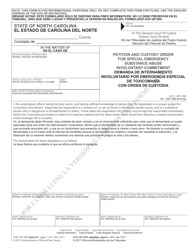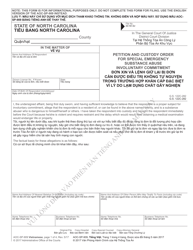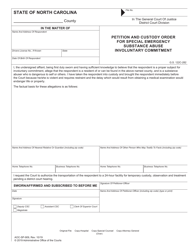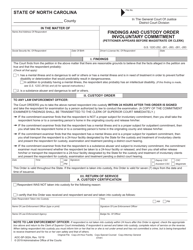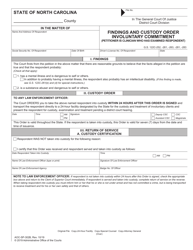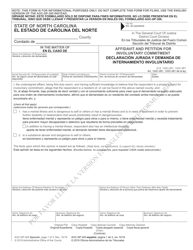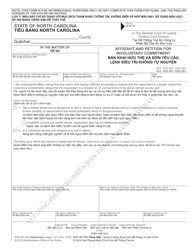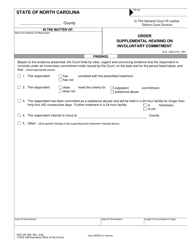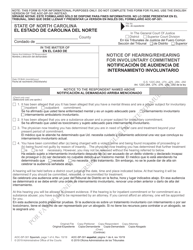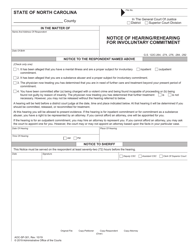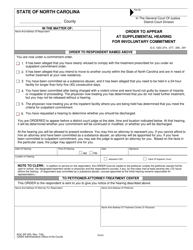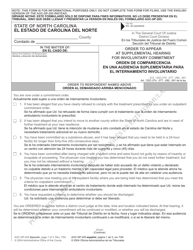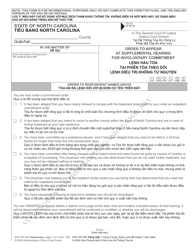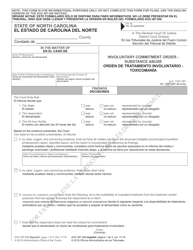Form AOC-SP-306 Involuntary Commitment Order - Substance Abuse - North Carolina
What Is Form AOC-SP-306?
This is a legal form that was released by the North Carolina District Court - a government authority operating within North Carolina. As of today, no separate filing guidelines for the form are provided by the issuing department.
FAQ
Q: What is Form AOC-SP-306?
A: Form AOC-SP-306 is the Involuntary Commitment Order specific to substance abuse in North Carolina.
Q: Who is this form used by?
A: This form is used by authorities such as doctors, clinicians, or law enforcement to initiate involuntary commitment for individuals struggling with substance abuse.
Q: What is the purpose of Form AOC-SP-306?
A: The purpose of this form is to legally commit individuals with substance abuse issues to a designated treatment facility for their own well-being and the safety of others.
Q: What information is required on Form AOC-SP-306?
A: This form requires detailed information about the individual's identity, behavioral concerns, medical history, drug use, and the basis for requesting involuntary commitment.
Q: Are there any fees associated with using this form?
A: There may be fees associated with filing and processing Form AOC-SP-306, although the specific fees may vary depending on the county or jurisdiction within North Carolina.
Q: Can I file Form AOC-SP-306 on my own?
A: No, this form must be filed by authorized individuals such as doctors, clinicians, or law enforcement personnel who have firsthand knowledge of the individual's substance abuse issues.
Q: What happens after Form AOC-SP-306 is filed?
A: Once Form AOC-SP-306 is filed, a judicial hearing will be scheduled, where a judge will review the evidence and determine whether involuntary commitment is warranted.
Q: How long does involuntary commitment last?
A: The length of involuntary commitment for substance abuse can vary depending on the individual's condition and the treatment plan determined by medical professionals. It can range from a few days to several weeks.
Q: What are the rights of the individual being involuntarily committed?
A: Individuals being involuntarily committed have the right to legal representation, the right to present evidence in their defense, and the right to appeal the decision of the court.
Q: Is there any follow-up care after involuntary commitment?
A: Yes, after involuntary commitment, individuals typically receive follow-up care and treatment to assist them in their recovery from substance abuse.
Form Details:
- Released on November 1, 2019;
- The latest edition provided by the North Carolina District Court;
- Easy to use and ready to print;
- Available in Spanish;
- Quick to customize;
- Compatible with most PDF-viewing applications;
- Fill out the form in our online filing application.
Download a fillable version of Form AOC-SP-306 by clicking the link below or browse more documents and templates provided by the North Carolina District Court.
